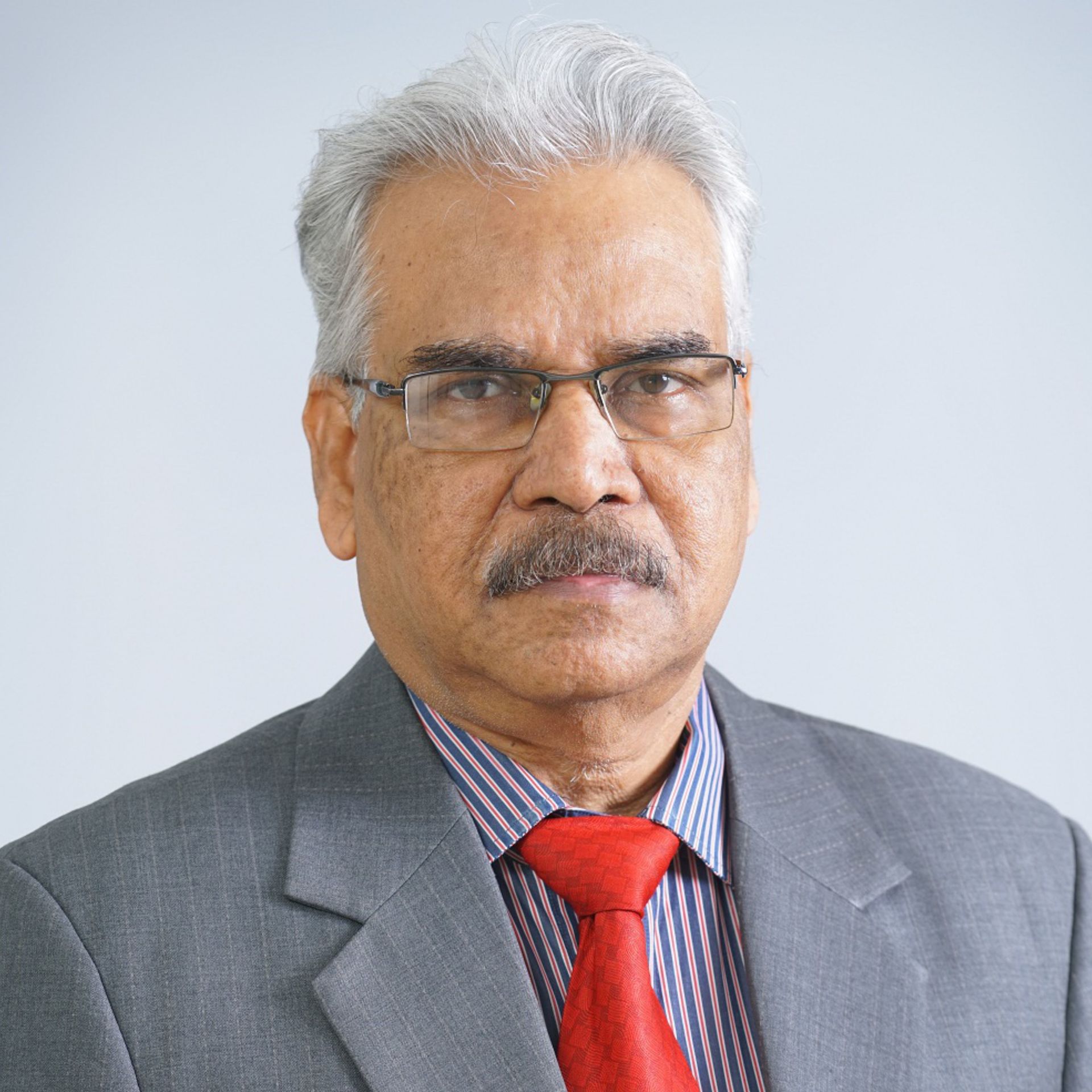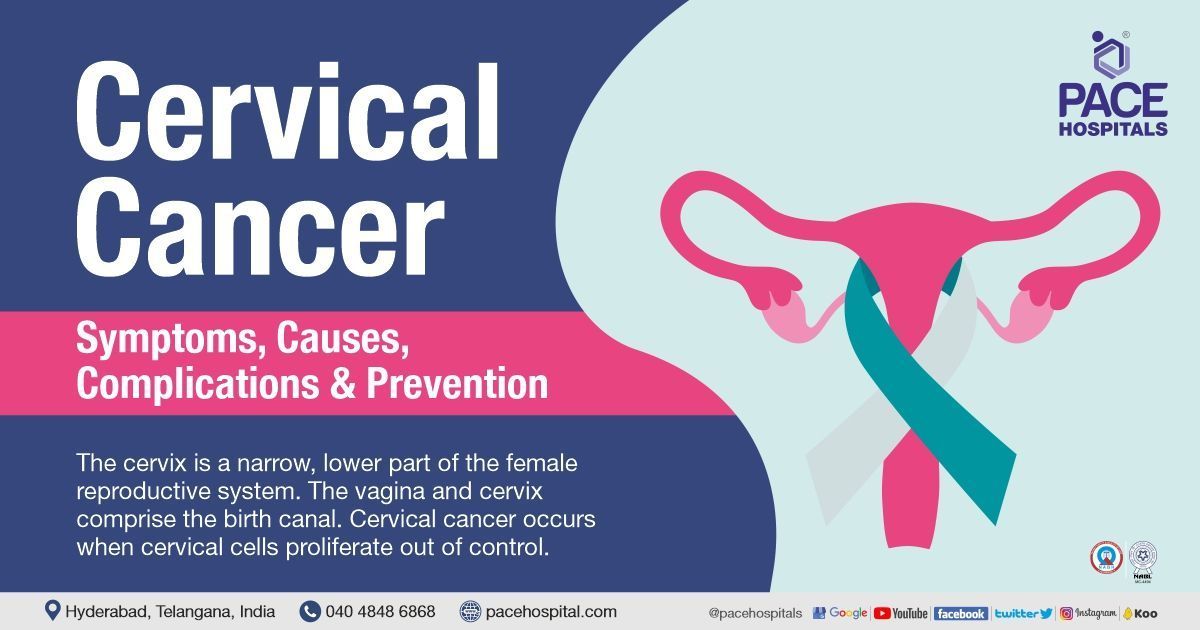Best Cervical Cancer Doctors in Hyderabad for Comprehensive Care
PACE Hospitals
✅ Recommended by 9,452 Happy Patients. Get hassle-free appointments with Cervical Cancer Specialists.
Dr. Ramesh Parimi
MS, FRCS, FAMS
Experience : 35+ years
Senior Consultant – Surgical Oncology, Specialist in Cancer Surgery
Specialist
Specialist in Stomach Cancer / Gastric Cancer, Head & Neck Cancer, Oral Cavity Cancer, Oropharyngeal Cancer, Intra-Oral Cancer, Laryngeal Cancer, Endometrial Cancer, Breast Cancer, Cervical Cancer, Ovarian Cancer, Oesophageal Cancer, Uterus Cancer, Lung Cancer, Thyroid Cancer, Kidney Cancer, Colon Cancer.
Expertise
Surgery for Stomach Cancer / Gastric Cancer, Head & Neck Cancer, Oral Cavity Cancer, Oropharyngeal Cancer, Intra-Oral Cancer, Laryngeal Cancer, Endometrial Cancer, Breast Cancer, Cervical Cancer, Ovarian Cancer, Oesophageal Cancer, Uterus Cancer, Lung Cancer, Thyroid Cancer, Kidney Cancer, Colon Cancer.
Consultation Details
Languages Spoken: English, Hindi, Telugu
Timing: Mon to Sat - 9 AM to 6 PM
Location: PACE Hospitals, HITEC City
Top Cervical Cancer Specialist in Hyderabad for Early Diagnosis and Treatment
PACE Hospitals is recognised for having the Top Cervical Cancer Specialist in Hyderabad, India, supported by a multidisciplinary team of experienced cervical cancer doctors across gynaecologic oncology, surgical oncology, radiation oncology, pathology, radiology, fertility care, and survivorship. The focus is on timely detection of cervical cancer, clear counselling, and coordinated pathways that prioritise safety, comfort, and long-term outcomes.
From the first visit, evaluation and staging are streamlined, incorporating colposcopy, biopsy, HPV testing, and appropriate imaging, followed by a tumour board review when required. Our expert cervical cancer treatment specialists create personalised plans aligned with disease stage, fertility preferences, and overall health, ensuring evidence-based cervical cancer treatment that is easy to understand and follow.
Care options include fertility-preserving procedures where appropriate, definitive surgery, external beam radiotherapy, brachytherapy, and systemic therapy, along with symptom control, nutrition support, rehabilitation, and structured surveillance. Each case is overseen by the best doctor for cervical cancer in India, working closely with the broader team to maintain quality, transparency, and continuity of care.
Choose the Best Cervical Cancer Doctors in Hyderabad, India at PACE Hospitals for quick appointments, clear pricing, and end-to-end coordination from diagnosis through treatment and follow-up, ensuring timely specialist care when it matters most.
Frequently Asked Questions (FAQs) on Cervical Cancer
What is cervical cancer?
Cervical cancer is a form of cancer that begins in the cells of the cervix, the lower part of the uterus that connects to the vagina. It usually develops slowly over time, often starting with abnormal changes in the cells caused by certain types of human papillomavirus (HPV) infection. If these abnormal cells are not found and treated, they can turn into cancer. Cervical cancer is a serious disease, but it can often be prevented and treated if detected early.
What are the signs and symptoms of cervical cancer?
In the early stages, cervical cancer often does not cause noticeable symptoms. When signs do occur, they may include unusual vaginal bleeding (such as between periods, after sex, or after menopause), heavier or longer periods, unusual vaginal discharge, pelvic pain, or pain during sex. In advanced cases, symptoms may include leg swelling, weight loss, or persistent back or pelvic pain that requires evaluation by an experienced cervical cancer doctor.
Is cervical cancer curable?
Cervical cancer can be curable, especially when it is found and treated early. The chances of a cure are highest if the cancer is detected before it spreads beyond the cervix. Depending on the stage of the cancer, treatment options may involve surgery, radiation therapy, or chemotherapy. Regular screening and early treatment significantly increase the chances of recovery. But if cancer is discovered at a later stage, it may be more difficult to treat successfully, so it is best managed by a cervical cancer treatment specialist.
How to prevent cervical cancer?
Cervical cancer can often be prevented by taking certain steps. Getting vaccinated against HPV, the main cause of cervical cancer, is highly effective. Regular screening tests, such as Pap smears and HPV testing, can find abnormal cells before they turn into cancer. Practicing safe sex and not smoking also helps lower the risk. Early detection and prevention measures are key to reducing the chances of developing cervical cancer, with guidance from a good doctor for cervical cancer.
What is the treatment for cervical cancer?
Treatment for cervical cancer is determined by the stage of the disease and the patient's overall condition. Common treatments include surgery to remove the malignancy, radiation therapy that kills cancer cells, and chemotherapy, which uses drugs to kill cancer cells. Sometimes, a combination of these treatments is used. Early stage cervical cancer is often treated with surgery, while more advanced cases may require radiation and chemotherapy together for better results under the care of top cervical cancer treatment doctors in Hyderabad at PACE Hospitals.
Which type of doctor should I consult for cervical cancer?
A person with cervical cancer should consult a gynaecologic oncologist, a doctor who specializes in cancers of the female reproductive system. Other specialists who may also be involved include medical oncologists (who manage chemotherapy), radiation oncologists (for radiation therapy), and general gynaecologists (for diagnosis or early care). A team approach is used for best outcomes, and many patients choose the best doctors for cervical cancer in Hyderabad at PACE Hospitals.
How to detect cervical cancer?
Cervical cancer is usually detected through screening tests, mainly the Pap smear and HPV DNA test. These tests look for abnormal cells or high-risk HPV infections before symptoms appear. If abnormalities are found, further examination such as colposcopy and biopsy may be done to confirm if cancer or pre-cancer is present. Early detection through these methods greatly improves treatment outcomes and is often led by an
expert cervical cancer treatment doctor.
Can HPV cause cervical cancer?
Yes, infection with some types of human papillomavirus (HPV) is the leading cause of cervical cancer. HPV is a common virus that spreads mostly through sexual contact. Most HPV infections resolve on their own, but certain types can lead to cancer if they last for many years. Protecting against HPV can lower your risk of cervical cancer, and timely care is provided by a
cervical cancer treatment doctor.
Is cervical cancer a sexually transmitted disease?
Cervical cancer itself is not a sexually transmitted disease (STD), but it is mainly caused by a sexually transmitted virus called HPV. The virus spreads through skin-to-skin contact during sexual intercourse. While not everyone with HPV develops cervical cancer, a lasting infection with certain high-risk strains of HPV can cause cancer if it is not found and treated early. Regular screening helps prevent this outcome with the help of a
cervical cancer specialist doctor.
What is the cervical cancer vaccine?
The cervical cancer vaccination, often called the HPV vaccine, protects against the HPV strains that usually cause cervical cancer. It is often given to children and young people before they start sexual activity. The vaccine is safe and effective; it reduces the chance of developing cervical cancer by preventing infection with high-risk HPV strains. It does not treat existing infections but helps stop new ones from starting, guided by a
cervical cancer treatment specialist.
Is cervical cancer contagious?
Cervical cancer is not contagious. It cannot pass from person to person through casual contact such as hugging, touching, or sharing food. The main risk comes from HPV infection, which is spread through sexual contact, not the cancer itself. However, for reassurance and care, many patients consult a
famous cervical cancer specialist in Hyderabad, India.
Can cervical cancer cause breast pain?
Cervical cancer does not usually cause breast pain. The symptoms of cervical cancer are mostly related to the lower part of the body. Breast pain is generally linked to other causes, like hormonal changes or breast conditions. If someone with cervical cancer experiences breast pain, it is likely due to another reason and needs to be checked by a
cervical cancer treatment doctor for proper diagnosis.
What are the different stages of cervical cancer?
Cervical cancer is classified into stages based on how far it has spread.
- Stage 1: Cancer is only in the cervix.
- Stage 2: It has spread to nearby areas.
- Stage 3: It has reached the lower vagina or pelvic wall.
- Stage 4: It has spread to distant organs.
These stages help doctors decide the best treatment plan, which is usually handled by
leading cervical cancer doctors at PACE Hospitals in Hyderabad, India.
Can endometriosis cause cervical cancer?
Endometriosis and cervical cancer are two distinct conditions. Endometriosis occurs when tissue similar to the lining of the uterus grows outside it, resulting in pain and bleeding. It is not known to directly cause cervical cancer. Cervical cancer is mainly caused by high-risk HPV infection. While both conditions affect the female reproductive system, research does not show a direct link between endometriosis and the development of cervical cancer, but concerns can be addressed by a
cervical cancer specialist.
What is the right age for the cervical cancer vaccine?
The cervical cancer vaccine, also called the
HPV vaccine, is most effective when used before a person begins sexual activity. Doctors recommend the vaccine for children between the ages of 9 and 12, but it can be given up to age 26. The vaccine protects against infection by the HPV strains. Getting vaccinated at the recommended age offers the best protection, often suggested by the
best doctors for cervical cancer treatment in Hyderabad, India.
Can an MRI detect cervical cancer?
Magnetic Resonance Imaging (MRI) can play a role in detecting and staging cervical cancer, particularly in assessing the extent of the tumour and whether it has spread to nearby tissues or lymph nodes. MRI can provide detailed images of soft tissues; it is not typically used as a primary screening tool for cervical cancer. Instead, it is often employed after an abnormal Pap test or biopsy to help determine the best course of treatment with input from an
expert cervical cancer treatment doctor.
Do cervical polyps cause cancer?
Cervical polyps are generally benign (non-cancerous) growths on the surface of the cervix. They are quite common and usually do not cause any symptoms, though sometimes they can lead to light bleeding. While the vast majority of cervical polyps are harmless and do not turn into cancer, they are sometimes removed to rule out any underlying issues or if they are causing bothersome symptoms. Regular gynaecological check-ups are important to monitor any changes, ideally with a
good doctor for cervical cancer.
Do birth control pills cause cervical cancer?
Birth control pills do not directly cause cervical cancer; long-term use (5 or more years) may be associated with a slightly increased risk. The primary cause of cervical cancer is HPV infection, and birth control pills can potentially increase the risk of HPV-related cervical cancer. However, this risk is often linked to other factors like HPV infection, length of pill use, and other lifestyle factors. Preventive advice is usually given by a
trusted cervical cancer specialist.
Does cervical cancer cause groin pain?
Cervical cancer does not usually cause groin pain in its early stages. Most early cases have no symptoms or only mild signs, such as abnormal vaginal bleeding. Groin pain may develop in more advanced stages if the cancer spreads to nearby tissues, nerves, or lymph nodes in the pelvic area. When this happens, pain can be felt in the lower abdomen, back, or groin, requiring assessment by the
best cervical cancer specialists in Hyderabad, India.
How long can cervical cancer remain undetected or without noticeable symptoms?
Cervical cancer can remain undetected or without noticeable symptoms for several years, especially in its early stages. Cervical cancer usually develops slowly, starting with precancerous changes that often do not cause any symptoms. These abnormal cells can take 10 to 20 years, or even longer, to develop into invasive cancer. Because symptoms often appear only in later stages, regular screening with Pap tests and HPV tests is important for early detection and prevention under the care of
top cervical cancer specialists in Hyderabad, India.
What our patients have to say
Expert Perspective
Why choose PACE Hospitals?
- A Multi-Super Speciality Hospital.
- NABH, NABL, NBE & NABH - Nursing Excellence accreditation.
- State-of-the-art Liver and Kidney transplant centre.
- Empanelled with all TPAs for smooth cashless benefits.
- Centralized HIMS (Hospital Information System).
- Computerized health records available via website.
- Minimum waiting time for Inpatient and Outpatient.
- Round-the-clock guidance from highly qualified super specialist doctors, surgeons and physicians.
- Standardization of ethical medical care.
- 24X7 Outpatient & Inpatient Pharmacy Services.
- State-of-the-art operation theaters.
- Intensive Care Units (Surgical and Medical) with ISO-9001 accreditation.
Share on
Request an appointment
Fill in the appointment form or call us instantly to book a confirmed appointment with our super specialist at 04048486868
Appointment request - health articles
Recent Articles













